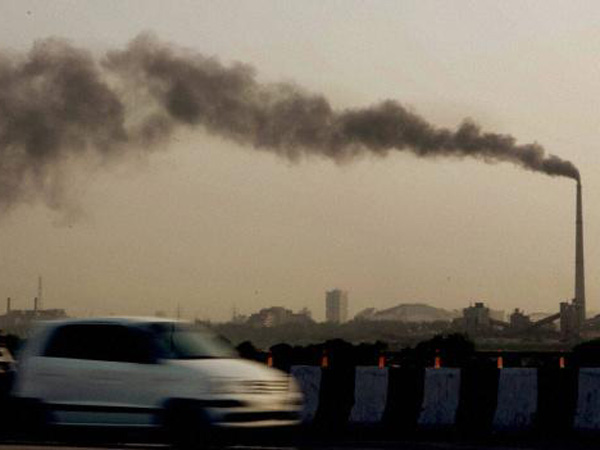Average life span of Delhites can increase by 9 years if air cleaned up
Indians could live four years longer on average if its air quality meets WHO standards.
A recent study has said that the life span of residents of Delhi will increase by an average of nine years if the national capital's air is cleaned to meet the World Health Organisation standards.

Delhi's worsening air quality has remained a concern for many years now. Several steps are suggested from time to time to tackle the problem but the main problem is due to the number of vehicles on Delhi roads. Delhi has more cars than the number of cars in other three metros put together.
National Capital Region residents are losing out on almost 6 years of life because of the dangerous air pollution levels. If WHO standards were met in NCR, people would live 9 years longer. In Kolkata and Mumbai better air quality would translate into almost 3.5 years longer life spans, an HT report said.
Indians could live four years longer on average if its air quality meets WHO standards, according to the Air Quality Life Index (AQLI) report developed by the Energy Policy Institute at the University of Chicago (EPIC).
The study takes air borne particulate matter pollution, PM 2.5, into account and extrapolates it to see what impact any reduction in its volume would have on the life span of people. Accordingly, it says that if PM 2.5 quantity in Delhi's air meets the WHO annual standard of 10 micrograms per cubic metre (ug/m3), people can live up to nine years longer and six years longer if it meets the national standard of 40 ug/m3.
Products of vehicular and industrial combustion, PM 2.5 are air borne ultra fine particulates, measuring less than 2.5 microns, which can cause irreparable harm to humans by entering the respiratory system and subsequently the bloodstream.
"The AQLI reveals that if India reduced its air pollution to comply with the WHO's air quality standard, its people could live about 4 years longer on average, or a combined more than 4.7 billion life years. Some of the greatest gains would be seen in the country's largest cities, such as Delhi. There, people could live 6 years longer if the country met its national standards, and 9 years longer if the country met WHO standards," the study says.
The AQLI arrives at the conclusions by translating the particulate concentrations into their impact on lifespans, "unlike previous studies that tend to rely on data tracking people's exposure over a short time period".
"It suggests that particulates are the greatest current environmental risk to human health, with the impact on life expectancy in many parts of the world similar to the effects of every man, woman and child smoking cigarettes for several decades," PTI quoted Michael Greenstone, Director of EPIC as saying.
Delhi has consistently ranked high among the list of most polluted cities in the world. The city is gearing up to tackle pollution that reaches perilous levels during the winter months.
OneIndia News with PTI inputs


 Click it and Unblock the Notifications
Click it and Unblock the Notifications


































